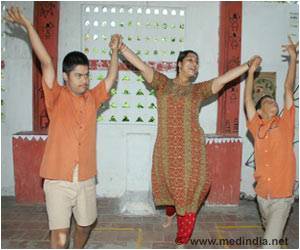Teens who reside in neighborhoods with dependable adults might acquire social skills that were not fostered during their early years.
- Early mother-child bonding improves social skills including good behavior, strong academic performance and emotional self-management in teens
- Children who could not foster this early mother-child bonding can still develop vital social skills during adolescence in communities with dependable and involved adults
The Fragile Families and Child Wellbeing Study, a nationally representative study of children born in 20 U.S. cities between 1998 and 2000, included data on 1,883 children aged 1, 3, and 15 years old.
Gauging Social Skills in Teens
To determine the children's attachment, the current study posed 39 questions, including “is quickly comforted by contact or interaction with mother while weeping or otherwise upset.” Greater security in the child's attachment to the mother was indicated by a higher score.The 15-year-old participants had to answer behavioral questions to gauge their adolescent social abilities. The study found a positive correlation between high child attachment scores and improved teen social skills.
When a child is three years old, some characteristics that indicate intimacy include “giving embraces or cuddles to the mother without being requested to do so,” “responding favorably to helpful ideas from mother," and "when a mother says follow, child does so cheerfully.” Increased adolescent social skills were positively connected with high scores in neighborhood social cohesion at age 3. The research also showed that neighbors had a significant impact on children's social skills when the mother-child attachment was weak.
For children with insecure attachments to their caregivers, social cohesiveness may have a buffering effect on social skills because of these relationships with other sources of support.
“The findings show that living in a neighborhood with high social cohesion is as important as having high attachment security to the mother. This means that when we think about policies and programs to empower our children in the community, we must consider directly supporting the family relations and investing in their surrounding community relations,” Hong said.
Source-Medindia











